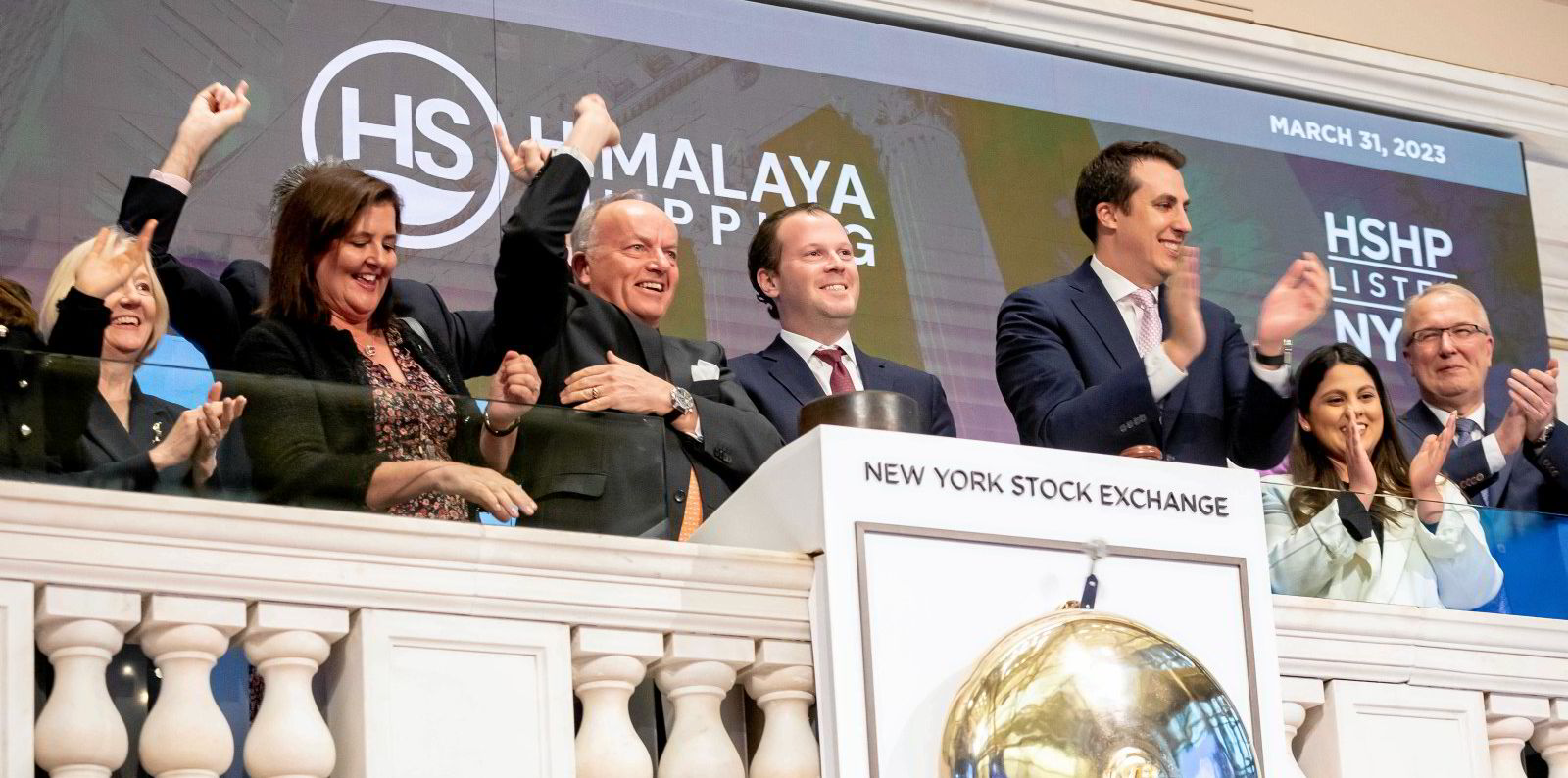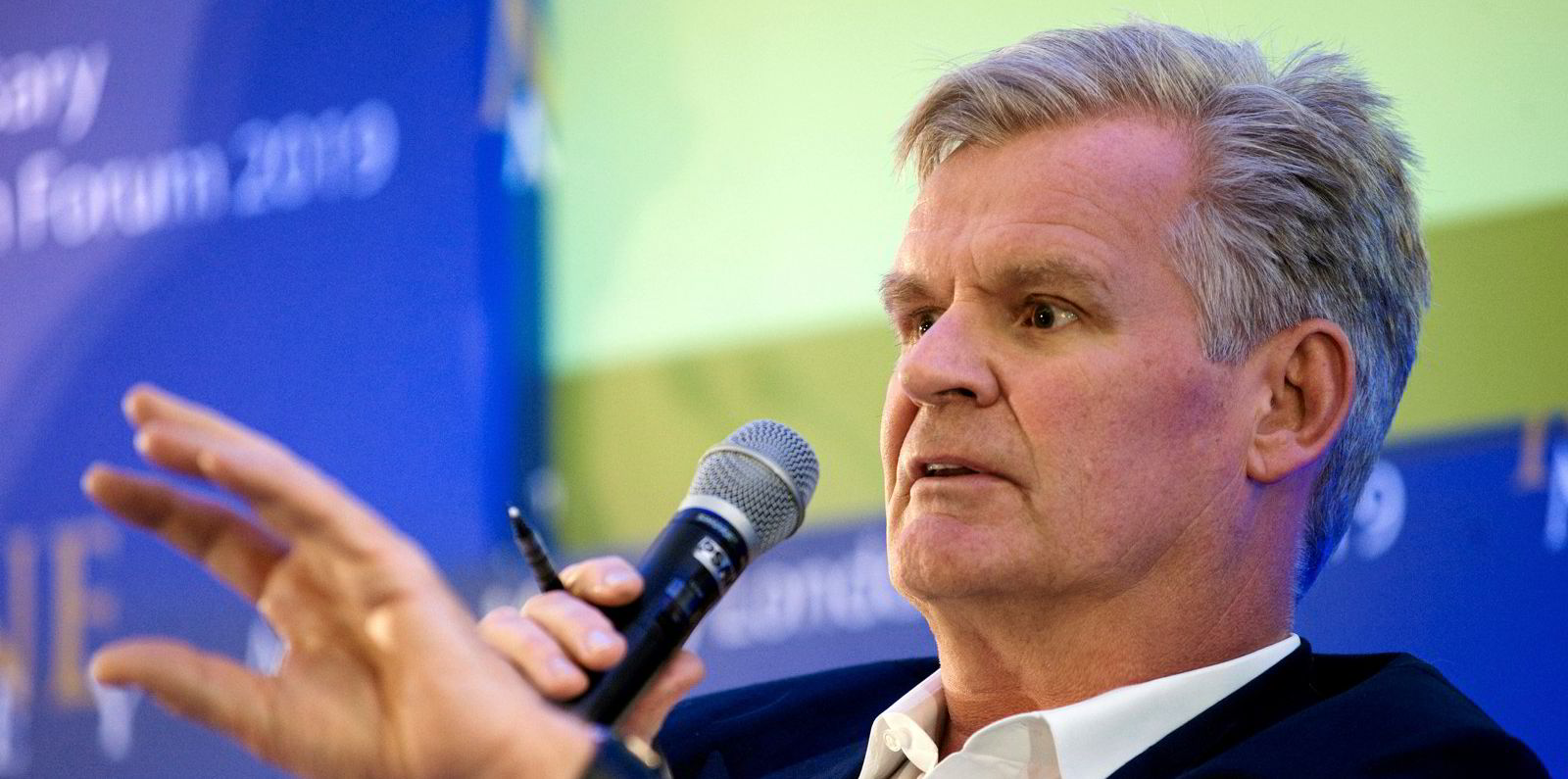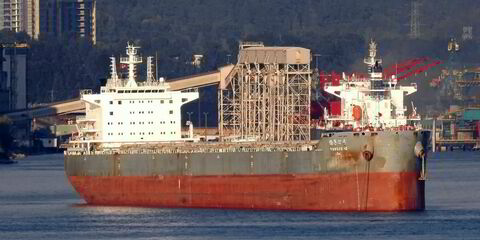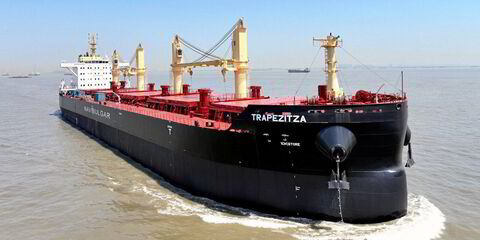Another of Himalaya Shipping’s dual-fuel newcastlemax bulk carriers has been fixed out on long-term charter, which means employment is in place for the entirety of its 12-vessel fleet.
Separately, another of Himalaya’s charterers has agreed to extend its existing contracts on six vessels by an additional year until the end of 2026.
On Thursday, the Oslo-listed shipowner said an unnamed “major Japanese shipping and logistics company” has fixed the final vessel on a 24-month, index-linked time-charter rate at a “significant premium” to the Baltic Capesize Index (BCI).
The deal also includes a profit share of any benefits generated from operating the vessel’s scrubber or running on LNG.
It also includes certain rights to convert the time-charter to fixed-rate employment based on the prevailing forward freight agreement (FFA) curve.
The contract will start when the ship is delivered from China’s New Times Shipbuilding in the first half of next year.
Himalaya, which has been backed by investor Tor Olav Troim, said its fleet will earn a 42.25% premium to the index on average.
Herman Billung, the contracted chief executive of Himalaya Shipping, said: “We are pleased that our vessels are achieving market-high premiums and the fact that one of Himalaya’s counterparts is showing further commitment based on the quality of the fleet and the experience gained so far trading the ships.
“Our simple structure, with index-linked charters earning a significant premium, low G&A [general and administrative] cost and financing with seven-year fixed bareboat rates puts us in a good position to deliver solid returns to our shareholders.”
Six more vessels
TradeWinds understands Himalaya’s charterers include Koch Industries and Mercuria.
Six more Himalaya vessels will hit the water by the end of July next year, with the newbuilding programme running slightly ahead of schedule.
The whole fleet will be fitted with scrubbers and be able to be fuelled with LNG, low-sulphur fuel oil or high-sulphur fuel oil.
In September, Himalaya’s live vessels achieved average gross time-charter equivalent earnings of approximately $23,500 per day. This is just below Fearnley Securities’ estimated break-even of $24,000 per day for Himalaya’s live fleet.




